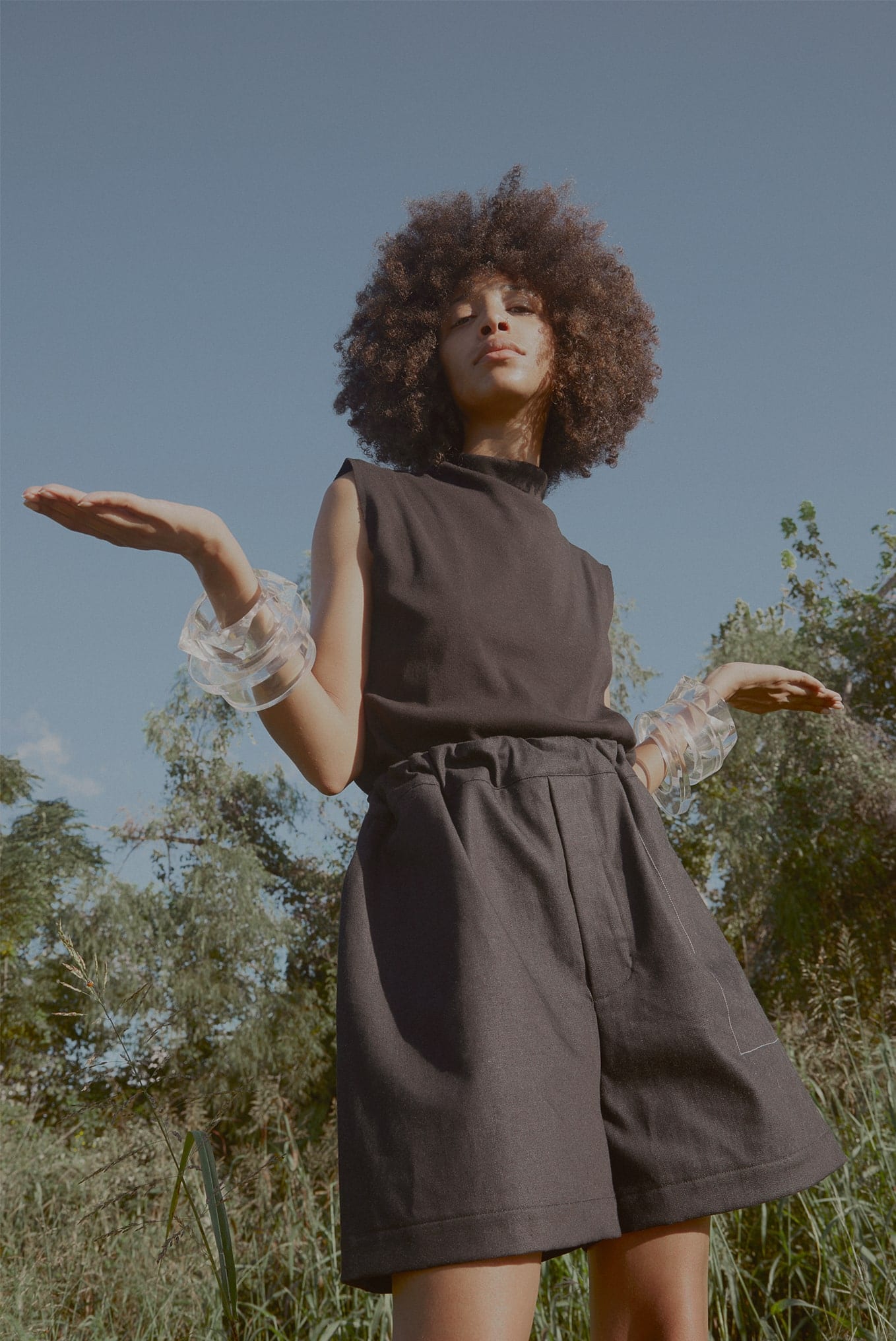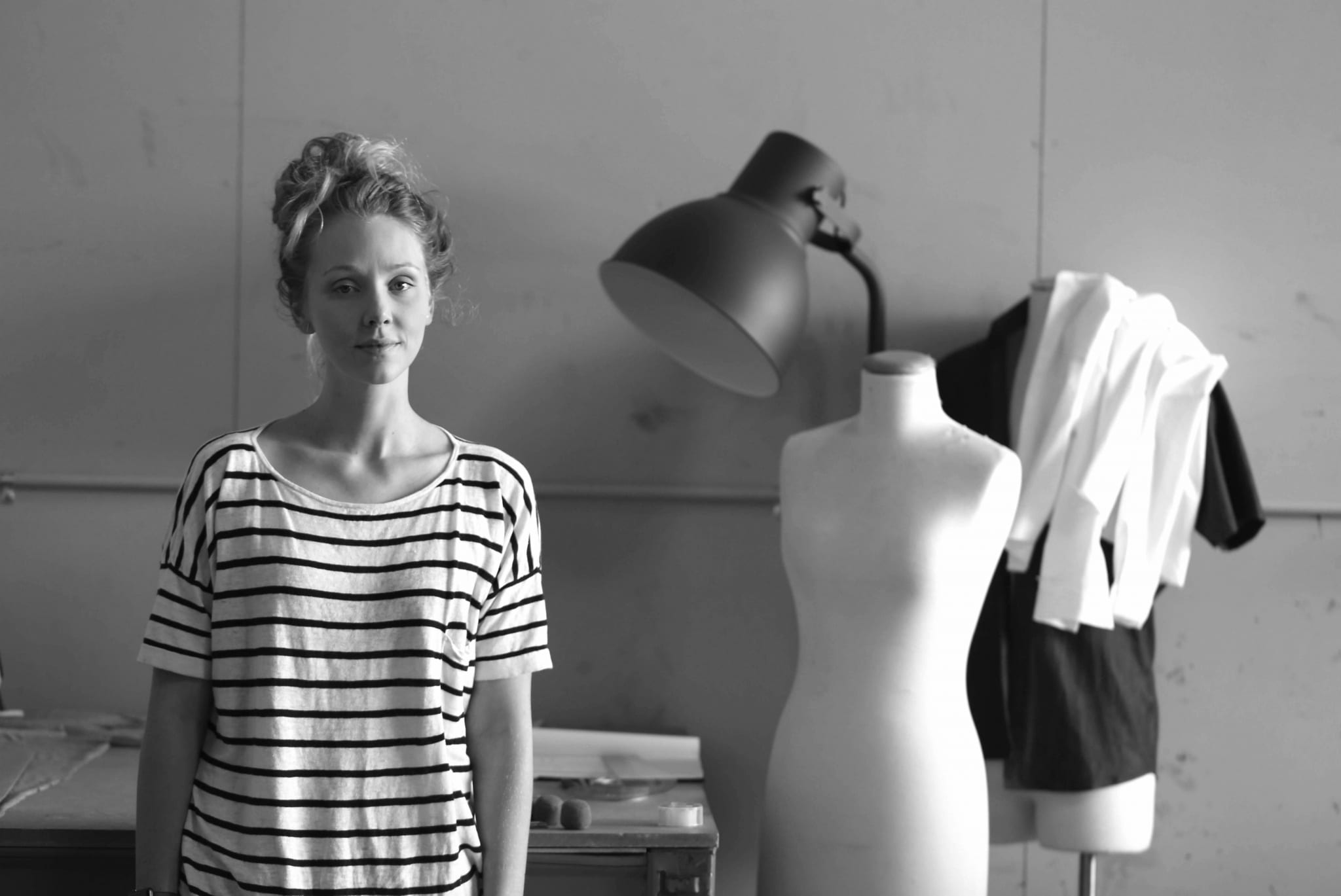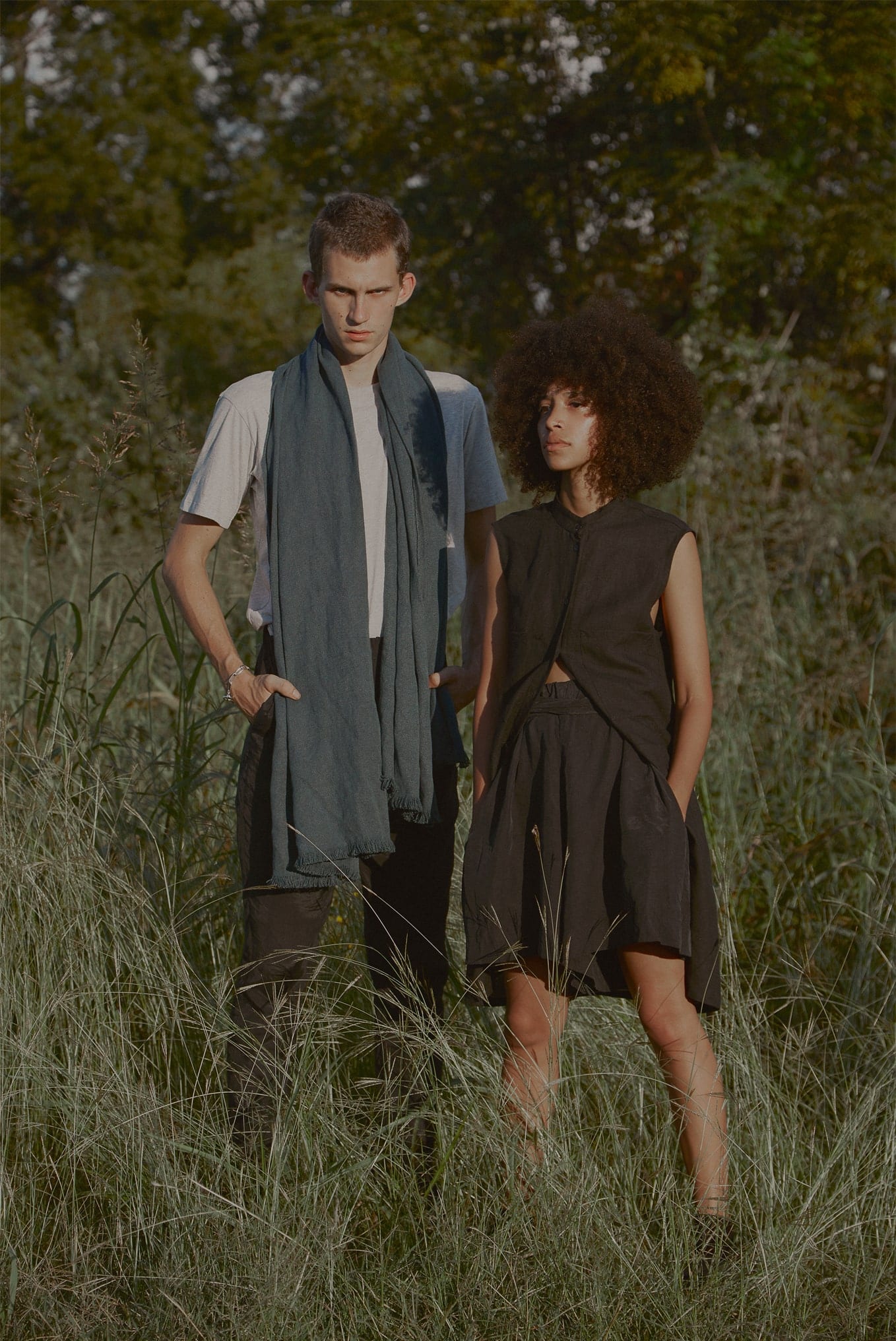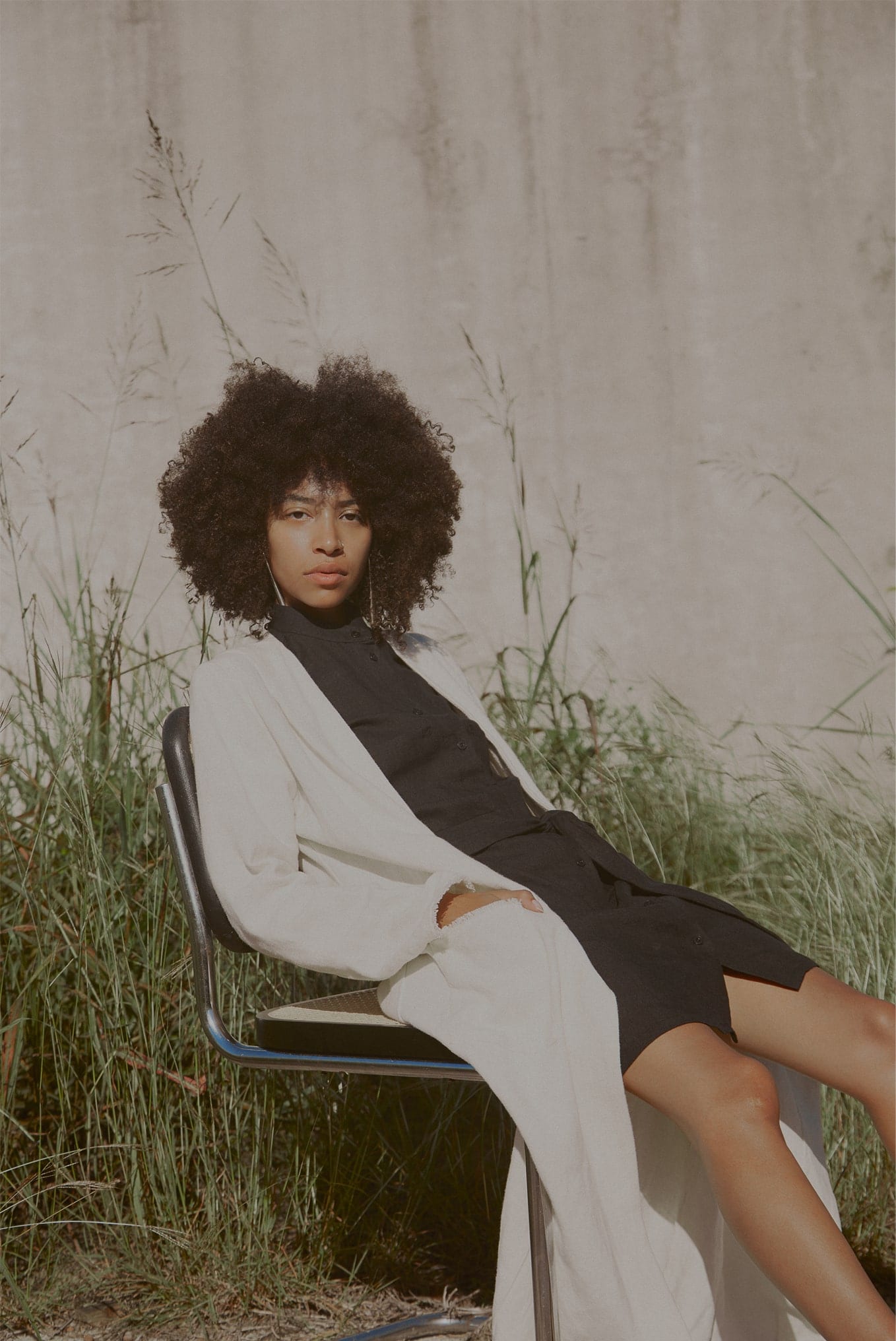
“I’m a dreamer, but when I say I am going to do something, I really will do it.”
Courtney Holm was already working in fashion when she began to realise her personal values weren’t aligning with her career path. “I mean, I thought they were in some distant way," the Melbourne-based designer explains. "But I was starting to really see first-hand the impact fashion was having on the world, from the atrocious treatment of the people making most of the world’s clothing, to the sheer volume of natural resources taken to feed a near global fashion addiction.” A period of research led Holmes to a crossroads: “I knew I needed to either get completely out of fashion or do something radical to change it. After a lot of soul searching, I chose to stick it out.” And ethical clothing label A.BCH was born in 2017, with focus on hyper-transparency and circular, whole garment design - using organic, natural and recycled materials.
“The biggest thing about circularity is that no one can do it alone,” tells Holm. “A.BCH can’t do it without our customer’s participation. It’s a collaborative and transformative shift.” So in celebration of her and the brand’s nomination for this year’s BT Emerging Fashion Designer Award (alumni include Albus Lumen and Christopher Esber) we asked Holm to share her insights into consuming responsibly and just what it takes to create an ethical label.
On starting an sustainable clothing label ...
It was a lot of research. Months of looking into articles, reading detailed reports, attending webinars in the middle of the night, learning from great organisations like Ellen MacArthur Foundation, C2C and B Corp. Simultaneously I was looking for raw materials that could help me form a library of building blocks, like threads and labels, buttons and interlinings. For each of those components, I did lifecycle assessments to determine the best material choice based on water usage, chemical usage, carbon emissions and energy and supply chain traceability. A lot of these innovative building block materials were in early stages of being commercially available. Often I had to convince companies to let me buy their products. Not an easy task as a startup, but I managed to get most of the right materials from the beginning.
On defining ‘circularity’ in fashion ...
Circularity or circular design is a philosophy for making products. The concept includes an inherent commitment to creating quality products that last, can be easily repaired and life-extended before the end of life phase.
Biological circularity means products made entirely from natural, renewable resources can eventually return to the earth safely and provide nutrients to soil. Technical circularity means products made entirely from synthetic materials can be melted down and recycled infinitely without quality loss or down-cycling. We take a biological approach as technical recycling of garments hasn’t got to where it needs to be yet for garments to be recycled without severe quality loss, plus there’s other issues around synthetics like skin allergies and micro plastic pollution that I’m hyper-aware of.
We have another layer of circularity through our recycling take back program where we A.BCH garments will eventually be recycled into completely new cellulose yarn that still retains biodegradability.

“I believe this urgent, proactive reinvention is the only way the industry can survive.”

On ensuring an ethical supply chain:
All our garments are made in Australia and are certified by ethical clothing Australia. ECA ensures that all Australian production is done ethically, with fair wages, working conditions and union representation as their main areas of focus. Further down the supply chain, we knit most of our organic cotton jersey fabrics right here in Victoria, and they are ECA accredited too. The rest of the materials originate overseas as they simply aren’t made in Australia anymore, or never were. Most of our raw materials are GOTS (Global Organic Textile Standard) certified and there are minimum social compliance criteria that must be met by all stages of the supply chain from harvest to finished material ... And we are working our way to physically visit every single supplier and farm within our supply chain as we grow.
On how to start consuming more responsibly:
I would say start by defining your values. It gets really hard to tackle every important issue all at once, but if you begin with your top concerns, the things that speak to you most, whether its animal cruelty or slave labour in the supply chain or carbon footprints, it will help you narrow down who you will support and who you wont. Second-hand shopping is always a good idea, so is buying less.
“I’m inspired by the intersections between the natural world and man-made world, making commentary of the harmony or chaos within.”
On what’s next for ABC.H ...
We have an exciting year ahead. We will soon be launching an Australian first, Lenzing Tencel Luxe, into the marketplace. While Tencel is nothing new, the latest innovation from Lenzing creates the finest filament fibres in a super sustainable way and making a fabric that’s incredibly similar to silk, giving people a vegan option that is still totally biodegradable ... Later in the year we ... will be aiming to develop the world’s first biodegradable stretch fabric!
On what makes it all worth it ...
I feel like we are building something genuine, lasting and good. I can’t even begin to describe the feeling when I’ve made a customer happy. And to hear that we have helped changed people’s minds in the industry or facilitated a consumer action is just priceless.
“With our desire to prove that hyper-transparency coupled with good design is possible, we are propelled to continuously improve.”




